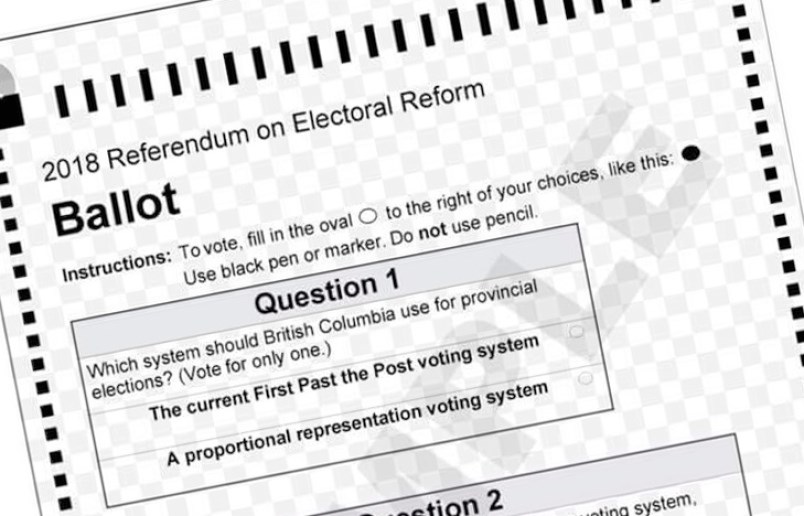Dear Editor:
To understand why I’m campaigning for proportional representation, let me take you back to when I met my wife. She was born in Saskatoon and I first met her in Creel, Mexico. Somewhere along the way to living together, we talked about elections. She mentioned that although she had always voted in provincial and federal elections, she had never been represented by the party of her choice. I was dumbfounded. My experience in the Netherlands had been the total opposite: I had voted for the party of my choice and have always seen that party get seats (and I had not been voting for big tent parties.)
Years later, I made the promise to my Canadian-born daughter and son that by the time they were old enough to vote they should be able to vote for the party of their choice and see their votes represented by that party. My daughter turns 18 next year, no pressure there!
I pushed myself out of my comfort zone and did a talk on proportional representation last Friday. About 50 Bowen Islanders and one Vancouverite attended the talk, organized by the B.C. Greens and held at Cates Hill Chapel.
What I learned from that night was that many people want our election system to be changed to make it proportional. They want a party that gets 35 per cent of the vote get 35 per cent of the seats; when it gets 20 per cent of the vote, it gets 20 per cent of the seats, etc.
I also learned that, more than anything, people want to vote for the party of their choice and not be forced to vote for the party they dislike, to keep the party they detest from winning.
They also don’t see anything right with parties that receive less than 50 per cent of the vote being able to get 100 per cent of the power in the B.C. Legislature.
During the talk I shared my experience of living in the Netherlands, a country that uses a proportional representation electoral system. I explained how the Netherlands political culture is different because of it. Parties that form majority coalitions have the support of more than 50 per cent of the vote. Smaller parties have seats in the Dutch parliament and have made important contributions to legislation over the years. Things get done, the country is stable.
I also shared that currently in the Netherlands a right wing populist party has seats. It has since 2006. But it is kept out of power through a cordon sanitair and the support for this party has stabilized. Please note that this is not a neo-nazi party, if it was, its chances of gaining seats would have been practically zero.
Having a right wing populist party in a parliament is a concern, but I must say, I would rather have that limited representation of a right wing populist party than a take-over with 40 per cent of the vote getting 100 per cent of the power as we have seen in Ontario and the U.S. With first-past-the-post, right-wing populists are unable to gain seats at first, but after a while, as socio-economic conditions further deteriorate, they very much do.
What I also heard Friday night was that some people are confused by having to rank the three options since not everything is known about them. Some even said that they feel the referendum is designed to fail because of this confusing ranking of the three systems. I agree
with this, as it unreasonable to assume that every person is an election systems expert when most of us are not. That’s why the site referendumguide.ca is very useful. After working through straightforward quiz questions, the site tells you what system you likely prefer.
More than anything, this referendum is about if we want to stay with first-past-the-post or modernize our electoral system and adopt proportional representation.
What we need is people and political parties to work together on issues like truth and reconciliation, climate change, affordability of living in our province, affordable housing and the threat of right wing populism. So don’t let this opportunity fail. We have to modernize our electoral system.
Proportional representation will force us to work together. That’s why I am all for it.
Vote “yes” to proportional representation.
Sincerely,
Anton van Walraven



